Beyond lockdown learning: lessons for the future
16 May 2022
What impact have lockdowns had on children’s education and our teacher-training programmes? Owen Poland talks to education experts at the University of Auckland.
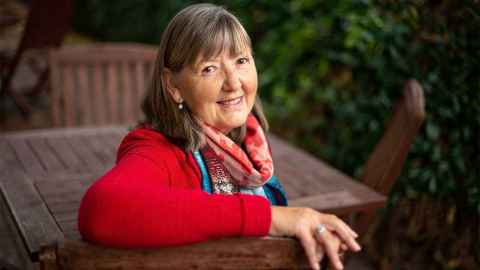
Covid-19 was never going to be kind to New Zealand’s education sector, especially when it was already sliding down OECD rankings for literacy, maths and science and there was a lack of equity in terms of at-home and online learning.
But while there are concerns about the disruption caused by lockdowns, including the impact on mental health, academics within the Faculty of Education and Social Work also believe that the pandemic has created an opportunity to reimagine education – and the role of schools in society.
Carol Mutch is a professor of Critical Studies in the Faculty of Education and Social Work at the University of Auckland. Having closely studied children under stress from the Christchurch earthquakes to the Australian bushfires and Japan’s tsunami, she says the pandemic has once again highlighted a social, economic and educational divide.
“While our best students are the best in the world, we also have this huge gap between those who do well and those who don’t do well. What Covid-19 did was actually give us a really stark reminder of what that looks like.”
The lack of technology and internet access for online learning is one thing, but Carol says many homes in lower socio-economic communities were “up against it” when they didn’t even have the basics like pens and paper. She asks: “Why doesn’t every child in the country have the opportunity to have what they’re entitled to?”
Problems with home education were exacerbated by fundamental issues such as child poverty and poor housing and, as the pandemic progressed, Carol says those problems got worse and children disengaged.
“This is a long-term systemic problem, both in society and in the way that education is funded, that needs a really big shake-up.”
We have this huge gap between those who do well and those who don’t. What Covid-19 did was actually give us a really stark reminder of what that looks like.
Mental health is another key issue, and she says children who started out with mild levels of trauma were coming back to school with a range of fears and anxiety.
“Teachers reported to me the level of mental health issues had gone up and there’s no way that schools could, with the limited resources that they had, try to cope with all of those things.”
In addition to being counsellors and social workers, principals and teachers were also feeding some families, which took a toll on their physical and mental health.
“I want to celebrate that schools stepped up. They absolutely did amazing things,” says Carol. “But what schools started to tell me after two years of Covid is that ‘we’re exhausted, we can’t take on much more of this role’.”
What’s needed, she says, is more training and long-term support for teachers to deal with the issues rather than making it up on the spot.
“If we’re going to use schools as the hubs of their communities, how do we make sure that they’re well-resourced and not putting their staff at risk?”
However, the biggest lesson for Carol was that children and young people wanted to go back to school.
“School offered some stability and normality and a sense of regularity that gave their days the shape and purpose that some students missed when their home lives didn’t allow for that.”
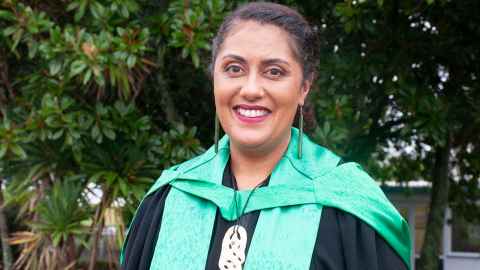
Inequity a leveller
As a former primary school teacher, mother of three and now lecturer at the Tai Tokerau Campus in Whangārei, Dr Maia Hetaraka knew how a crisis like Covid would play out in the Far North.
“When you’re from a demographic or community where things are already tough, we know that in these types of situations things get tougher – they don’t get easier.”
One of the major challenges was online learning.
“We have communities here where kids live in homes that don’t have power let alone an internet connection,” says Maia, who is programme leader and acting director at Tai Tokerau Campus. “It isn’t just a simple matter of ‘now all go home and log on to your devices’.”
In some cases, teachers distributed their own Computers on Wheels (COWs) and Chromebooks to needy families. And because the educational packs issued by the Ministry of Education took a long time to arrive, schools and their communities assembled their own work sheets and reading material.
“They would use the marae as a centre for the preparation, like a production line. It was a little factory inside the marae space to get packs ready for the kids.”
We have communities here where kids live in homes that don’t have power let alone an internet connection.
There was also a strong focus on preparing children to stay healthy, keep their minds active and do some schoolwork at home.
“A lot of work from schools went into really trying to get children and students to focus on their own well-being, whereas perhaps in normal times we’re less likely to do that.”
Maia believes the crisis drew people together.
“People in some of our communities, who perhaps were a bit disconnected from the marae or from the hapū or iwi, actually pulled together.”
One thing she isn’t so concerned about is the impact on academic achievement.
“The gains that I hope we will see in our young people, in our student teachers, is that self-belief, that capacity to cope and look for solutions, to problem solve.
“They are all just as important as their formal academic results.”
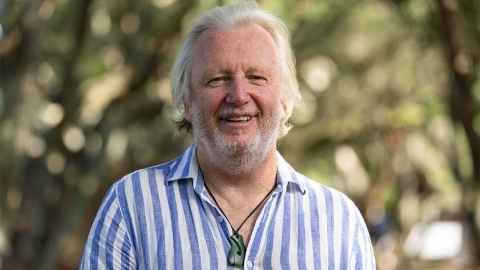
Well-being focus
The importance of student well-being over academic achievement also resonates with Professor Peter O’Connor, director of the Centre for Arts and Social Transformation (CAST). He says teachers couldn’t simply go back to school after various lockdowns as if nothing had happened.
“You actually have to go back and work with the problems, the worries, the concerns and the issues.”
Those issues potentially included dealing with very sick kids and parents, and deaths in communities.
“The teacher in the room has an absolute responsibility to make sense of the world with children. That’s what teachers are supposed to do. Not just prepare them for the future, but help them to understand the world in which they live.”
To that end, Peter and the CAST team launched Te Rito Toi after the first lockdown in March 2020, as an online resource to help primary teachers address student well-being when they returned to classrooms.
“When we came back after lockdowns, we were the only country in the world where it was government policy in primary schools to return with a focus on mental health and well-being.”
Two years later, Te Rito Toi has been downloaded more than 400,000 times in 114 countries and with more than 60,000 teachers attending webinars on the resource.
“I’m hoping that when we look at what we learnt in schools, one of the things we learned was that a focus on well-being was the smartest thing you could do and the University of Auckland was central to that thinking.”
The platform was developed within weeks at minimal cost with support from the Chartwell Trust and the John Kirwan Foundation, and Peter is also grateful for the backing from the NZ Principals Federation and the NZEI.
“The freedom that you have to work nimbly because you’re funded is extraordinary,” he says. “And you don’t have to wait for government policy change, you can lead government policy change.”
We learned that a focus on well-being was the smartest thing you could do and the University was central to that thinking.
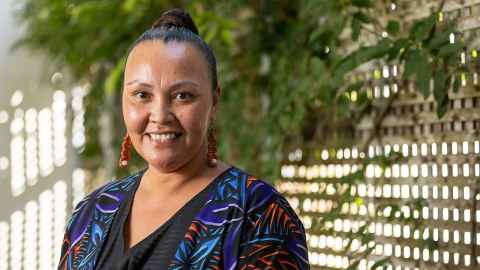
Examples of resilience
Through her role as a course director for stage one and two teacher trainees at the faculty’s main Epsom campus, Dr Jacinta Oldehaver says there’s no denying the impact of lockdowns.
“Everyone was stressed. Let’s not beat around the bush, we were stressed as well.”
Perhaps the biggest loss for student teachers was the live face-to-face teaching experiences.
“We’re trying to develop teachers who enter the workforce with empathy, perspective, critical thinking and who can understand relationality. That’s very difficult when your experiences are predominantly online because of the pandemic,” says Jacinta.
But she marvels at the resilience of many Pacific students who volunteered to be part of the vaccination programme while they studied.
“We had students, particularly in our South Auckland community, who were in charge of the vaccination centres and running big vaccination drives in their communities as well as caring for family and trying to stay well.”
Everyone was stressed. Let’s not beat around the bush, we were stressed as well.
Lecturers noticed that online engagement was often low and so their practices had to be modified to be more inclusive. There was also an upsurge in students seeking extensions during the August lockdown, which Jacinta says had to be granted to achieve equity.
“When we think about equity, it’s about how we make sure those equal opportunities are adjusted, modified and amplified to meet needs and to ensure that everyone is able to achieve.”
Despite a fall in student enrolments for initial teacher education in 2022, Jacinta believes it’ll take “quite a long time” to assess the impact of the disruption. She says first-year students are starting out with positive attitudes.
“They are there for the right reason; because they want to make a difference.”
It could also take years to fully understand the effect on academic achievement in Pacific communities, although Jacinta says the sheer number of people who have been infected by Covid could be “a telling factor”. The biggest issue is getting students to feel confident and safe enough to return to school.
“If they’re not there, obviously that’s going to have a big impact.”
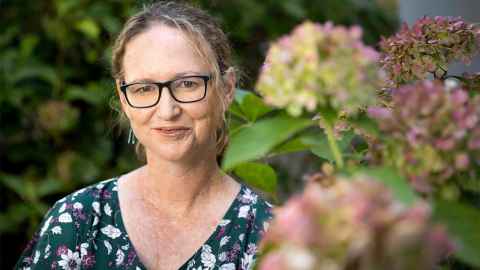
Online offerings explode
Not surprisingly, the pandemic triggered an increase in the use of online instructional programmes for literacy and maths where a host of brands gained popularity, including Education Perfect, Mathletics, Studyladder, Sumdog and MathsBuddy.
“We have this broadly public educational system where our education is free and then there are these mostly private corporations that have kind of snuck into our schools and sell their services to our students at quite considerable cost,” says Dr Lisa Darragh, who is now studying their efficacy through a Marsden Fast Start grant.
A pre-pandemic survey indicated that 79 percent of primary schools were using commercial programmes as part of what they described as a ‘balanced’ programme of rich quality learning experiences.
But once Covid hit, Lisa says the marketing “amped up massively” as companies saw an opening to increase market share.
“This pandemic has created an opportunity for online instructional programmes to gain even more of a foothold in mathematics education than they already had. I find that problematic.”
The research focus for Lisa is on the so-called ‘student learner identity’ – or the relationship that students form with the subject of mathematics – which greatly affects their achievement and participation.
This pandemic has created an opportunity for online instructional programmes to gain even more of a foothold in mathematics education than they already had. I find that problematic.
“You could argue that they might get more from the machine than they get from the teacher, but that’s only a broken teacher-student relationship,” she says.
While there are positives like the Matific maths learning platform that’s been translated into te reo Māori, Lisa is concerned about the reward systems embedded in some programmes. She also worries about the use of hidden algorithms to assess performance rather than having face-to-face conversations between students and teachers.
For secondary students, one programme where the reward may come from simply passing NCEA is STEM Online (stemonline.auckland.ac.nz), developed by the University from philanthropic funding. It had huge pickup in 2021 and was free with no ads. It’s an interactive teaching and learning resource specific to the New Zealand curriculum, aimed at assisting secondary students to complete NCEA external standards in STEM subjects (science, technology, engineering and mathematics).
In 2021, user numbers more than doubled 2020, and it was used by about 12,000 students from around 40 percent of secondary schools.
But Lisa thinks schools still need to think about teachers’ roles. “I’m hoping my research will help schools to consider how much teaching and learning in mathematics they’re willing to give up to a machine.”
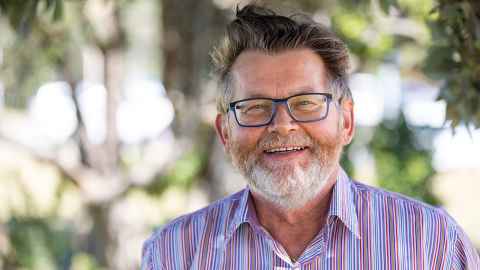
I have this magical idea that schools could be more connected to the community.
Professor John Morgan, head of Critical Studies in Education, has done a lot of work on curriculum change.
“Now is a good time for New Zealand to take a good look at the curriculum taught in schools – whether and how it is ‘fit for purpose’. Part of the reason for this is it’s unclear what the medium and long-term impacts of Covid-19 will be.”
Even with the best online resources, there are concerns over equitable internet access.
For Professor Gavin Brown, the success of ICT networked learning without the distraction of classrooms – or teachers – raises the spectre of a ‘dark future’ if post-pandemic societies decide to gradually de-school.
While de-schooling might “work well for the privileged in society” who have the resources at home, Gavin says it is fundamentally inequitable because technologies aren’t evenly distributed.
“It’s a different world for people who are struggling with two or three jobs.”
Given the evolution of humans as social beings, he says interacting with others helps with our thinking, emotions and physicality.
“There’s something about being human that requires us to live and interact with others that I fear a de-schooled society, using only computers, would deprive our children of.”
Rather than de-school, he says there’s an opportunity to create a re-schooled society, making greater use of the huge investment in infrastructure.
“I have this magical idea that schools could be more connected to the community.”
In essence, schools would become ‘core social centres’ where learning is integrated with employment, welfare and health services, much like West Auckland’s Waipareira Trust where, Gavin says, “the whole community is the customer base rather than just kids between the ages of 13 and 18”.
On the score of academic performance, Gavin isn’t unduly worried about the potential impact of Covid on New Zealand’s steadily declining international education rankings. As the director of the Qualitative Data Analysis and Research Unit in the Faculty of Education, he says rankings like the Programme for International Student Assessment (PISA) unfairly compare New Zealand with China.
“That’s like comparing red apples with rubber boots,” he says. “There’s a political agenda in PISA that is not based on good science. It’s a business agenda.”
Gavin is also concerned about the move to online exams for many NCEA external standards.
“NZQA can’t demand that students do external exams on computers if we can’t ensure that every kid has an equal and fair opportunity to practise and be prepared for that medium of assessment – and access to high-quality machinery with broadband.”
Rather than blame teaching practices for poor academic outcomes, Gavin says there needs to be greater investment in a child’s home experiences before they get to school.
“It’s a whole different ball game in terms of investing in children’s early life experiences. And that’s where your greatest bang for your buck is going to happen.”
John Morgan adds that changes need to be made to improve outcomes by thinking outside the curriculum square.
“What we do know is that, even before the pandemic, many young people were sliding down the ladder of social mobility rather than climbing up it,” he says.
“The unknown quantity is how, globally, the next generations of children and young people will think about things. It may be a case of ‘Ok Boomers, you did this, but that’s not for us’.”
Now is a good time for New Zealand to take a good look at the curriculum taught in schools – whether and how it is ‘fit for purpose’.
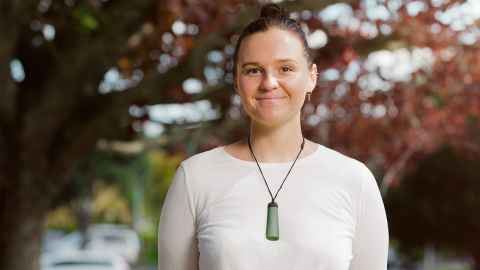
Challenge for first-year teachers
Rori Baird chose to become a teacher because she wanted to help people, much like her mother does as an emergency department nurse, “without seeing their blood and bones”, she says. However her entry into the profession has been anything but plain sailing.
Being forced into lockdown during her final year of studies in 2020 meant that for some papers she hardly knew her lecturers and struggled without the in-person relationship.
“Not being able to bounce ideas off people was really hard.”
Lockdowns also deprived her of five weeks of valuable placement time, and finding work was difficult. More than 30 job applications produced just three interviews and Rori considers herself “lucky” to be in her second year at a large Auckland primary school.
Faced with teaching online within weeks of starting out in 2021, she says it’s been heart-breaking to watch some students struggle through a 30-minute Zoom session.
“They couldn’t see their friends. They were stuck, maybe with their siblings who they didn’t really like, or they weren’t even online learning because they didn’t have access to it.”
The Omicron wave also brought fresh disruption in 2022 as students came and went through sickness or isolation. Rori says her Year 3 cohort has seen very little schooling.
“We’re really teaching them the Year 2 way of doing stuff because they have no idea what a school year is like. You really feel for the kids who’ve never had a full year at school – and they’re aged seven now.”
She still has no regrets about her career choice. And looking back, she values the flexibility learnt from switching from online to in-person teaching.
“I could not imagine another job. I have never been more in love with teaching.”
This feature was the cover story in Ingenio magazine, Autumn 2022 edition.
Email: ingenio@auckland.ac.nz